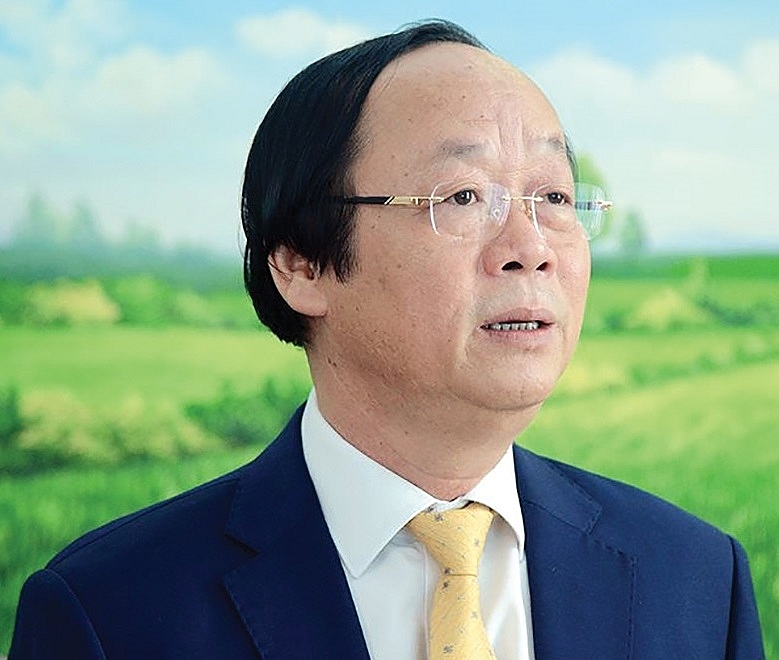Vietnam honours Clean Up the World campaign
How did the Clean Up the World campaign come about and how is it celebrated in Vietnam?
 |
| Deputy Minister of Natural Resources and Environment Vo Tuan Nhan |
The Clean Up the World campaign was initiated back in 1993 by Australia and was then launched by the United Nations Environment Programme (UNEP) on a global scale, to be held on the third week of every September. Ever since then, the campaign has become one of the major international annual events about the environment, drawing active engagement from hundreds of millions of participants from more than 130 countries around the world.
This is a valued chance to call on organisations, businesses, individuals, and the entire community to partake in activities on environmental protection and improvement through collecting, processing, recycling waste, and saying no to single-use and non-biodegradable plastic bags.
Responding to the UNEP’s call, this year the Ministry of Natural Resources and Environment (MoNRE) chose the theme “Take action to change the world” to marshal organisations, businesses, and communities to take action to protect their surroundings.
Amid the current complications of the COVID-19 pandemic, it would be unwise to stage or join a big launching event – but even a small gesture can be significant. Planting a tree or deciding to give up non-biodegradable – such as single-use – plastic bags, or even just spreading the message of conservation will make the world a greener, cleaner, and better place for all.
In this of all years, protecting the environment has the added dimension of fending off the COVID-19 pandemic too.
What instructions and orientations has the MoNRE issued to help localities and sectors reach their environmental goals?
The MoNRE has enacted a document this month to guide ministries, sectors, and localities in deploying activities in conjunction with the UNEP’s call. This document also takes into consideration the pandemic-induced difficulties as well as the campaign’s theme for this year.
Along with this, the ministry encourages localities to adjust to the actual situation their activities, which include collecting and processing waste; dealing with unsolved environmental issues in specific areas, organisations, or production units; or dredging canals, among others.
For communications activities, the focus this year will be on processing plastic waste and non-biodegradable plastic bags; and cleaning ponds, canals, and ditches for a cleaner environment.
Bolstering cooperation with media agencies to better communicate the environmental protection message is another priority, concentrating on responding to the Clean Up the World campaign 2020 such as promoting the classification, collecting, and treatment of solid waste in people’s daily lives, encouraging people to say no to non-biodegradable bags, as well as creating media materials to raise awareness of environmental protection.
It is also necessary to detect and highlight exemplary action by collectives, individuals, and businesses which strive to rationally use and manage natural resources or roll out solutions and initiatives to take care of the environment.
Even the smallest action by an individual or a community would bring us a step closer to a better tomorrow, making the planet to become greener and our living environment more pleasant.
The prime minister recently signed Directive No.33/CT-TTg on strengthening the management, reuse, recycling, treatment, and reduction of plastic waste. What measures will the MoNRE apply to ensure the directive’s effective enforcement?
The MoNRE will soon promulgate an action plan to facilitate Directive 33. Relevant ministries and sectors are also working on a roadmap to mitigate the use of plastic waste in particular fields by promoting the 3R (reduce, reuse, and recycle) approach which re-positions waste as resource.
The growth of the anti-plastic waste movement over the past year is a vivid testament to the strenuous efforts of the whole system with legislators changing policies, businesses reforming their activities, and communities and individuals rousing themselves to awareness.
A key change on the side of producers and traders of plastic products was the establishment of the Packaging Recycling Organization Vietnam (PRO Vietnam) by 13 major businesses in the field making a firm commitment to building out a circular economy in Vietnam.
All PRO Vietnam members are committed to having the entirety of their packaging be recycled by 2030.
Many other eco-friendly activities have taken place across the country, such as the move to replace plastic bags with green alternatives. These activities are growing more pervasive and are helping to change mindsets among consumers.
In the draft amendments to the Law on Environmental Protection slated for approval by the National Assembly soon, the MoNRE has detailed the responsibility of the producers and users of waste, including single-use plastic items. One underlining principle is that products doing harm to the environment will bear higher tax and fees while top incentives will be given to environmentally friendly production. The Law on Environmental Protection 2020 also aims to take environmental tax and fees to incentivise more eco-friendly behaviour for producers and consumers.
What the stars mean:
★ Poor ★ ★ Promising ★★★ Good ★★★★ Very good ★★★★★ Exceptional
 Tag:
Tag:
Related Contents
Latest News
More News
- VinaCapital launches Vietnam's first two strategic-beta ETFs (February 26, 2026 | 09:00)
- PM sets five key tasks to accelerate sci-tech development (February 26, 2026 | 08:00)
- PM outlines new tasks for healthcare sector (February 25, 2026 | 16:00)
- Citi report finds global trade transformed by tariffs and AI (February 25, 2026 | 10:49)
- Vietnam sets ambitious dairy growth targets (February 24, 2026 | 18:00)
- Vietnam, New Zealand seek level-up in ties (February 19, 2026 | 18:06)
- Untapped potential in relations with Indonesia (February 19, 2026 | 17:56)
- German strengths match Vietnamese aspirations (February 19, 2026 | 17:40)
- Vietnam’s pivotal year for advancing sustainability (February 19, 2026 | 08:44)
- Strengthening the core role of industry and trade (February 19, 2026 | 08:35)




















 Mobile Version
Mobile Version